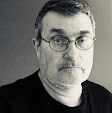Dawson offered 'hope for all' --- with 'help from all'
The WASP patricians (FDR and Churchill among many) running the Allied show during WWII could find it embarrassingly hard at times to bend down to help small and weak peoples in desperate need.
But at least this wartime task fitted in with their peacetime traditional notions of patrician obligation to extend charity to others.
What they and their ilk couldn't accept at all was the truly radical idea of accepting charity offers from the weak and the small designed to help them, the rich powerful leaders of rich powerful nations, not to lose the war against the Axis.
So they'd repeatedly indicated they would rather lose the war to fellow white man (Hitler) than win it with masses of darkie infantry troops.
'Share the wealth' with the small via a meagre trickle down, was always much more to their taste than to fully share responsibilities (and power) with the small.
At first glance, Dr Martin Henry Dawson's wartime Manhattan-based project to try and save 'the least of these' in medical priority lists, 'the 4Fs of the 4Fs' (the young patients dying from SBE) seemed to fit in well with the patricians' notions of charity to the weak and small.
This despite the fact that it involved saving a category of patients that the patricians of the medical elite had already decided would be among the first to die by 'benign neglect', as they began triaging the priorities in the Allied war medicine effort.
But Dawson also totally rejected the medical consensus to wait for a medicine made by the white man, even if it only came after the war, rather than use medicine made by Nature's 'darkies of the darkies', the tiny microbes.
He gladly turned to them instead and these small and weak beings successfully made the medicine that saved both the small and weak in wartime and also the healthiest, wealthiest and most powerful among us in peacetime : natural penicillin.
Eighty five years later, we're still waiting for White Man's artificial penicillin and the little darkie bugs are still making natural penicillin and all the other beta lactam antibiotics that form the bulk of our defences against fatal infectious diseases.
If we had instead waiting for the WASPs to get their act together, most of us would have died on infections by now....
